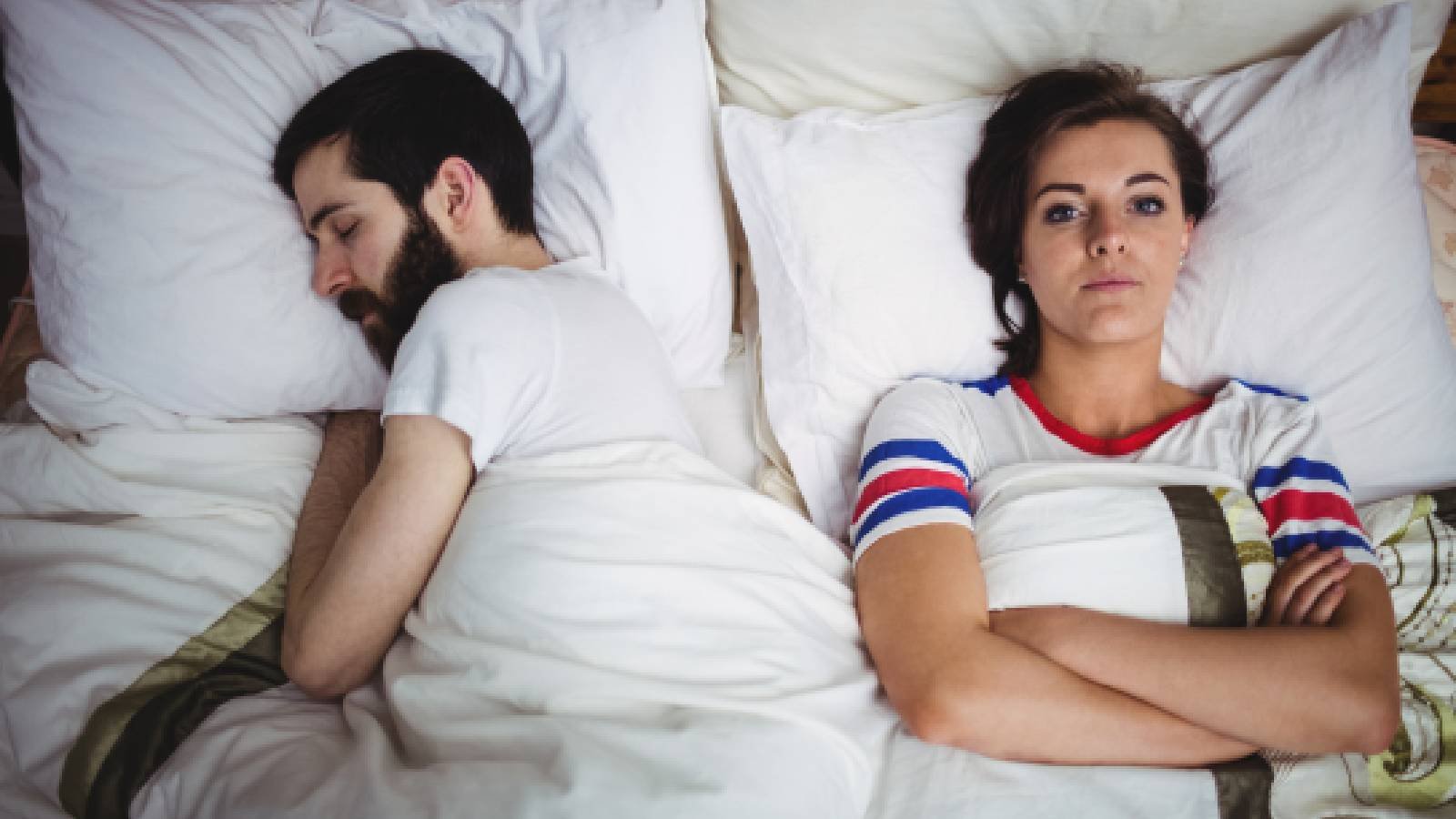Low libido in women can be a result of many factors such as age, hormonal changes, relationship status as well as pregnancy. Here is what you can do.
Have you been wondering why you are not as sexually active as you once were? Some women, at some point in their lives, report feeling less inclined to engage in any sort of sexual activity. Low libido in women is a natural occurrence that can happen due to various factors such as age or other changes in daily life, such as relationship status, pregnancy, menopause, or other reasons. However, there are ways to improve low libido in women.
Health Shots got in touch with obstetrician and gynaecologist Dr Sandhya Rani to know all about low sex drive in women.
What is low libido?
Simply put, it is about your desire to have sex or engage in sexual activities. “Low libido refers to a decreased interest or desire for sexual activity. It occurs as a lack of interest in initiating or participating in sexual activities, impacting one’s overall sexual satisfaction,” explains Dr Rani.

This feeling of a sudden desire for sex is not something that happens all the time. It’s natural for women to experience fluctuations in libido. “It can occur at various life stages, such as during pregnancy, postpartum, menopause or due to hormonal changes associated with aging,” says Dr Rani.
What leads to low libido in women?
Some factors that lead to low sex drive in women are:
1. Hormonal changes
Our bodies go through many hormonal fluctuations which impact the way we feel. Fluctuations in estrogen and testosterone levels can take a toll on our libido.
2. Painful sex
Experiencing pain during sex can make you not want to engage in it as well. Women can experience pain due to infections, vaginismus, etc and this can reduce the desire to have sex.
3. Medical conditions
There are many medical conditions such as arthritis, high blood pressure, neurological diseases or surgeries on the breast or genital tract, that can have an impact on your sexual desires. Some medications like some antidepressants can impact libido as well.
4. Stress and mental health
Mental health issues such as anxiety, depression, high-stress levels, low self-esteem can lead to low libido in women. Also, a previous negative sexual experience can make you want to refrain from sex.
5. Relationship issues
In a relationship, trust is very important. A lack of trust can lead to many problems in communication as well as unresolved conflicts. This can lead to you not want to engage in any sexual activity with the concerned person.
Also Read: Loss of sex drive? Here’s what low libido says about your health
6. Fatigue
A feeling of being tired and lack of sleep can often lead to one not wanting to have sex. In fact, exhaustion can have an impact on our overall well-being.
How to get rid of low libido in women?
There are various approaches one can adopt to overcome low libido
1. Communication
Honesty is the best policy over here. Be open to discussing your desires and concerns with your partner. Together, you can work out a solution to your sexual problems and this will go a long way in helping you increase your libido.
2. Manage stress
We might think stress is only related to mental health, but in reality, the consequences of stress can spill on to our other aspects of daily life as well. Incorporate stress-reducing activities into daily life with your partner, this would help increase your sexual drive.
3. Healthy lifestyle
Following a healthy lifestyle, in terms of regular exercise and a balanced diet not only promotes overall well-being, but also has an impact on our sexual desires.
4. Adequate sleep
Sleep is very important for our health. Prioritize sufficient and quality sleep for hormonal balance. This has a direct impact on our libido.
5. Medical check-ups
Regular check-ups to address any underlying health issues must a priority as low sexual libido might be a side effect of a medication or one of the effects of a medical condition that you are undergoing, and changes can be made accordingly.

Can you increase your sex drive?
Ensuring hormonal balance is a fundamental aspect, involving regular check-ups and personalized hormonal therapies if necessary. “Adopting a holistic lifestyle that includes regular exercise, a balanced diet, avoid smoking, alcohol and having sufficient sleep is essential, as these factors contribute significantly to overall sexual well-being,” says Dr Rani.
Communication and emotional intimacy play pivotal roles; fostering open dialogue with a partner creates a supportive environment for a fulfilling sexual connection.
“Besides this, encouraging exploration and variety in intimate experiences can also bring excitement to one’s sex life,” says Dr Rani.
Finally, seeking professional guidance from a healthcare expert or gynaecologist is advisable to address any potential underlying factors and receive personalised advice for a comprehensive approach to enhancing sex drive.







